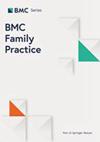自我保健、自我效能感和健康偏离自我保健要求的相互作用:从奥勒姆的自我保健理论角度对 2 型糖尿病患者进行的研究
IF 3.2
3区 医学
Q1 MEDICINE, GENERAL & INTERNAL
引用次数: 0
摘要
本研究旨在以奥瑞姆的自我护理理论为基础,研究 2 型糖尿病患者的自我护理、自我效能感和健康偏差自我护理要求之间的关系。研究采用描述性分析横断面设计,涉及伊朗拉什特的 341 名 2 型糖尿病患者。数据收集包括基于奥瑞姆模型的自我护理行为、自我效能和健康偏差自我护理要求评估问卷。性别、婚姻状况、就业、教育程度、年龄、病程、口服治疗和胰岛素等人口统计学因素对自我护理行为没有一致的影响。自我效能感是影响糖尿病患者自我护理行为的关键因素。自我护理行为与自我效能感之间存在强烈的直接相关性,这表明个人的信心在管理糖尿病方面发挥着重要作用。健康偏差自我护理要求与自我护理行为的不同领域既有正相关又有负相关。这项研究为了解 2 型糖尿病患者的自我护理、自我效能感和健康偏差自我护理要求之间的复杂关系提供了宝贵的见解。研究结果强调了在糖尿病管理策略中解决自我效能和特定自我护理领域(如体育锻炼和足部护理)问题的重要性。这项研究为现有知识库做出了贡献,可为医护人员和政策制定者提供信息,帮助他们制定有针对性的干预措施,改善糖尿病患者的自我护理实践。本文章由计算机程序翻译,如有差异,请以英文原文为准。
Interplay of self-care, self-efficacy, and health deviation self-care requisites: a study on type 2 diabetes patients through the lens of Orem’s self-care theory
This study aimed to examine the relationship between Self-Care, Self-Efficacy, and Health Deviation Self-Care Requisites in patients with type 2 diabetes based on Orem’s Self-Care Theory. The research involved 341 patients with type 2 diabetes in Rasht, Iran, using a descriptive-analytical cross-sectional design. The data collection included questionnaires assessing Self-Care Behaviors, Self-Efficacy, and Health Deviation Self-Care Requisites based on Orem’s model. Demographic factors such as gender, marital status, employment, education, age, duration of disease, and oral treatment and insulin had no consistent effect on self-care behaviors. Self-efficacy was a key factor influencing Self-Care Behaviors in diabetic patients. There was a strong and direct correlation between Self-Care Behaviors and Self-Efficacy, indicating the role of individuals’ confidence in managing diabetes. Health Deviation Self-Care Requisites had both positive and negative correlations with different domains of Self-Care Behaviors.The physical exercise construct of self-efficacy was the most significant predictor of Self-Care Behaviors. This study provides valuable insights into the complex relationship between Self-Care, Self-Efficacy, and Health Deviation Self-Care Requisites in patients with type 2 diabetes. The findings underscore the importance of addressing Self-Efficacy and specific self-care domains, such as physical activity and foot care, in diabetes management strategies. This research contributes to the existing knowledge base and may inform healthcare professionals and policymakers in developing targeted interventions to improve self-care practices in diabetic patients.
求助全文
通过发布文献求助,成功后即可免费获取论文全文。
去求助
来源期刊

BMC Family Practice
医学-医学:内科
CiteScore
3.20
自引率
0.00%
发文量
0
审稿时长
4-8 weeks
期刊介绍:
BMC Family Practice is an open access, peer-reviewed journal that considers articles on all aspects of primary health care research. The journal has a special focus on clinical decision making and management, continuing professional education, service utilization, needs and demand, and the organization and delivery of primary care and care in the community.
 求助内容:
求助内容: 应助结果提醒方式:
应助结果提醒方式:


